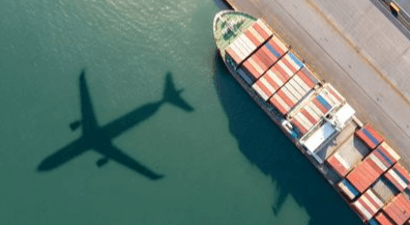Bribery and Corruption: Importer vs Agent Liability
There are many third-party business relationships the world over where bribery and corruption have been found, including those involving freight forwarders, brokers and agents in the shipping and express delivery arena. This is particularly true where companies are required to deliver goods into a foreign country through the assistance of a freight forwarder or express delivery service. There are several major risk points including location, customs and other governmental agencies, aviation and postal regulators and agents and sub-agents.
A well-known case was that of Panalpina World Transport Holdings Limited, a Swiss logistics company with non-US listing who, in November 2010, agreed to pay $70.56 million in penalties to the US Department of Justice, coupled with $11.33 million in illicit profits to the Securities and Exchange Commission due to bribes paid to customs officials in places like Latin America and Nigeria.
Locally, the question that often arises is, in cases involving the bribing of a government official by the importer’s agent, who is liable when the fraud is uncovered? The importer or the agent?
There was a local case recently, involving the release of a container by a customs officer who was bribed by a clearing agent to issue a false release letter. When it was discovered that the container had never been examined and that the release was false, a penalty of R300 000 was imposed on the importer because his agent had bribed the customs official. This case raises questions in terms of liability.
Where an innocent third party suffers a loss because of the wrongful behavior of a customs official acting in the course of their employ, SARS can be held liable for a damages claim based on the principle of vicarious liability and the provisions of the State Liability Act 20 of 1957. This was upheld by the Supreme Court of Appeal in C: SARS and Another v TFN Diamond Cutting Works (Pty) Ltd 2005 (5) SA 104 (SCA) (67 SATC 171). Section 4(13) of the Customs and Excise Act 91 of 1964 provides that customs officials cannot be held liable for any loss or damage arising out of any bona fide action of an officer under that section. Fraud cuts through everything, and is obviously not a bona fide act.
The clearing and forwarding agent can escape liability in terms of the provisor to section 99(2) of the Customs and Excise Act (liability of agent for obligations imposed on principal), provided they have taken all reasonable steps to comply with the act and are not party to any contravention. Clearly, where the customs officer is bribed by a clearing agent, the clearing agent could be held liable by SARS.
The importer is in an invidious position, because section 98 of the Customs and Excise Act provides that the importer is responsible for any acts by its agent. This is premised on the basis that in law, the importer would have a right of recourse against that agent. Notwithstanding the reverse onus on the importer to show due entry in terms of section 102 of the Customs and Excise Act (sellers of goods to produce proof of payment of duty), where SARS alleges fraud, the onus of proof clearly lies with SARS. Authority for this can be found in AMI Forwarding (Pty) Ltd v Government of the Republic of South Africa (Department of Customs & Excise) & another [2010] JOL 25382 (SCA).
It is imperative that importers make use of third-party agents that they trust, and agents that have implemented strong anti-bribery and corruption practices across their business. The transport industry is traditionally not very transparent, and has only made a slow shift over the years to change this. Fraud, bribery, and other illegalities are endemic to some parts of the industry, and the world.





